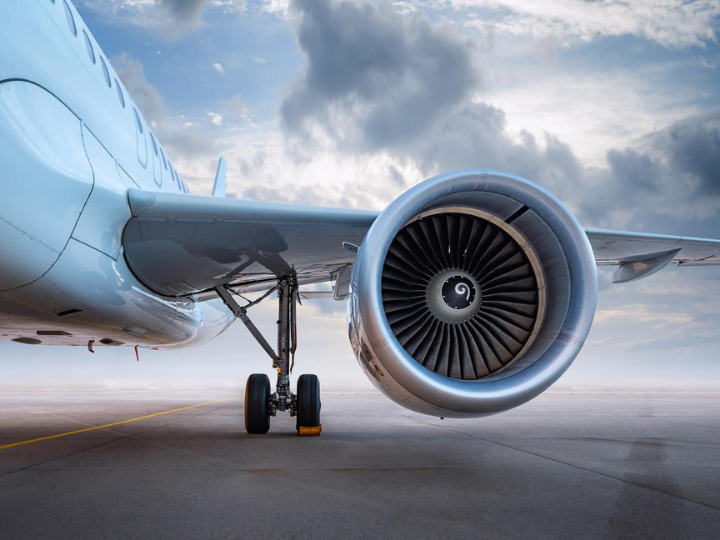by Sean Goulding Carroll
Two of Europe’s leading aviation companies have cast doubt on hydrogen’s ability to replace kerosene in the near future, arguing that scaling up sustainable aviation fuels (SAFs) is the best option to decarbonise flying.
“The problem is with its density,” said Eric Trappier, chairman and CEO of Dassault Aviation, the French manufacturer of military and business jets.
“If we want to carry enough hydrogen in an aircraft, we have to compress it at very high pressures, or liquefy it at very low temperatures,” Trappier said, adding: “The consensus is that hydrogen use may be limited to short and medium range flights.”
Hydrogen can be a zero emission fuel source if made with renewable electricity.
In September, European aerospace giant Airbus said it aimed to develop a commercial airliner by 2035 that can be fuelled by hydrogen, potentially unlocking the prospect of zero-emission air travel.
But hydrogen requires considerably more space than kerosene for an equivalent journey, resulting in larger fuel tanks that leave less room for passengers.
“Experts are claiming that hydrogen is a more cost-effective, easier, and faster to certify than biofuels,” said David Paddock, the president of Jet Aviation, an industry leader in aviation services.
“However, despite research efforts in recent years, we believe it is unlikely that the aerospace market will adopt hydrogen in any material way for airplane operations given the lack of infrastructure, power plants, and investment relative to other alternatives,” he told EURACTIV.
Embracing sustainable aviation fuels
Both company leaders believe that SAFs are key to lowering aviation emissions, but say its usage is being held back by a lack of production and high cost.
“The aircraft industry has fully embraced SAFs. We want to use them. But we need the supply to be available,” said Trappier.
“Today, the problem [with SAF uptake] is not on the aircraft side, but on the supply side. While governments have given full priority to the development of biodiesel for road transportation, there is no similar support for the development of SAF production.
“As this is new technology, with no governmental incentives, it is much more expensive. I expect that rising production of SAF over the next ten years will lower the price and increase usage,” he added.
Paddock also sees a growing interest in SAF but argues that greater supply is needed to drive demand. “The challenge with SAF uptake remains the limited production, supply, and infrastructure, and a limited understanding, and compelling economic proposition, about the fuel.”
According to him, strong public-private partnerships are needed to make SAFs a success globally.
The EU’s upcoming ReFuelEU proposal, which is expected to set a legal requirement for a percentage of SAFs to be blended with kerosene, is welcomed by the company heads, but with a caveat.
“The key point for ReFuelEU is to establish a realistic pathway for a SAF production ramp-up. SAF blending mandates wouldn’t be useful if production is not sufficient in Europe,” said Paddock.
A “level playing field” is vital says Trappier, who stresses the need to establish “rules for fair cooperation among all the players.”
“It is inefficient to impose new taxes on one national operator when the traffic can be diverted to another neighbouring country where the taxes do not apply. We clearly need to think at the EU level, but action should also be taken at international level,” at the UN’s International Civil Aviation Organisation.
Blending mandates also must take into account the level of supply to be effective, says Paddock.
“Mandates should be scaled so that greater levels of SAF can be introduced while maintaining a balance in supply and demand. It is difficult to fix on a specific percentage for any mandates introduced but being carefully scaled is key,” he added.
Book and Claim
Business jets touch down in a far greater number of locations than commercial airlines, which can make accessing SAFs difficult – small airports may not have green jet fuel available for refuelling. The solve this problem, the business aviation industry is pushing for the EU to embrace the ‘Book and Claim’ system.
“Under ‘Book and Claim’, business jet operators can purchase SAF at an airport where it is unavailable and receive credit for its supply and use at an airport where it is available. This offers a solution for locations where access to SAF is not feasible, or does not make environmental sense – for example, moving SAF across long distances,” explains Paddock.
“Our approach is to offer physical SAF where possible… and offer Book and Claim as our second solution where SAF is not accessible. This also ensures we can support all of our customers, regardless of which service they are using, anywhere in the world, anytime,” he added.
Trappier believes that Book and Claim certificates could be audited by an approved agency to prevent the recounting of SAF usage. These certificates would then act as proof of the CO2 saved by the aircraft.
“Such certificates should be recognised by carbon mechanisms such as the EU emission trading scheme or CORSIA,” an international aviation carbon offsetting scheme developed by the ICAO.
“This should be urgently put in place by the EU,” said Trappier.
Charting a more efficient path
Air travel may be able to avoid the twists and turns of road transport, but air journeys are still far from straight lines between two points. Often, planes are forced to take inefficient routes set by the national territory they are traversing.
The aviation industry has long argued that optimising these routes could lower emissions, reduce noise, and save money. “It has been suggested that an efficient air traffic control system could reduce fuel burn and therefore CO2 output by as much as 10% without compromising safety,” said Paddock.
“Air traffic control support is needed,” agrees Trappier. “This is not the case yet, but significant CO2 reductions are possible.”
*first published in: www.euractiv.com




 By: N. Peter Kramer
By: N. Peter Kramer
